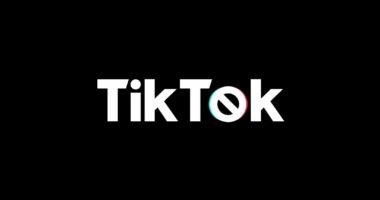Setting a budget for social media marketing is essential for businesses of all sizes. It enables effective resource allocation, ensuring optimal returns on marketing investments. Without a defined budget, companies risk overspending, potentially leading to financial strain and reduced ROI.
A clear budget helps businesses set realistic goals and expectations for their social media marketing efforts, facilitating accurate performance measurement and progress tracking. Moreover, establishing a social media marketing budget provides businesses with control and accountability. It allows for prioritization of marketing initiatives and informed decision-making regarding resource allocation.
This is particularly crucial for small businesses with limited funds, as it helps prevent overspending and focuses efforts on the most impactful strategies. A budget also aids in identifying areas of overspending or underutilization, enabling businesses to make necessary adjustments to improve their overall marketing strategy.
Key Takeaways
- Setting a budget for social media marketing is crucial for effective planning and resource allocation.
- Analyzing the costs and benefits of social media marketing helps in determining the return on investment.
- Creating a detailed plan for social media marketing expenses ensures that resources are used efficiently.
- Utilizing an influencer database can help maximize the efficiency of the social media marketing budget.
- Allocating funds for different social media platforms and campaigns is essential for targeted and effective marketing efforts.
- Monitoring and adjusting the budget for social media marketing allows for flexibility and optimization of resources.
- Measuring the ROI of social media marketing investments is important for evaluating the success of the marketing efforts.
Analyzing the Costs and Benefits of Social Media Marketing
Understanding the Costs
While social media marketing can be a cost-effective way to reach a large audience, it’s crucial to consider the potential expenses involved, such as advertising costs, content creation, and employee time. By understanding the costs associated with social media marketing, businesses can make informed decisions about how to allocate their resources and maximize their return on investment.
Realizing the Benefits
On the other hand, it’s also vital to consider the benefits of social media marketing. This can include increased brand awareness, customer engagement, lead generation, and ultimately, sales. By analyzing the potential benefits of social media marketing, businesses can determine whether the investment is worthwhile and how it aligns with their overall marketing goals.
Setting Realistic Expectations
Additionally, understanding the benefits can help businesses set realistic expectations for their social media marketing efforts and measure their success accurately.
Creating a Detailed Plan for Social Media Marketing Expenses

Creating a detailed plan for social media marketing expenses is essential for businesses looking to maximize their marketing efforts. This plan should outline all potential costs associated with social media marketing, including advertising expenses, content creation, employee time, and any other relevant expenses. By creating a comprehensive plan, businesses can ensure that they are accounting for all potential costs and avoid any unexpected financial surprises along the way.
Furthermore, a detailed plan for social media marketing expenses can help businesses prioritize their spending and allocate resources effectively. This can include setting specific budgets for different social media platforms, campaigns, or initiatives, ensuring that resources are being used in the most impactful way possible. Additionally, having a detailed plan in place can help businesses identify areas where they may be overspending or underutilizing resources, allowing them to make necessary adjustments to improve their overall marketing strategy.
Utilizing an Influencer Database to Maximize Budget Efficiency
| Metrics | Value |
|---|---|
| Number of Influencers in Database | 150 |
| Engagement Rate | 5% |
| Average Cost per Post | 100 |
| Reach per Post | 10,000 |
| Conversion Rate | 3% |
Utilizing an influencer database can be an effective way for businesses to maximize their budget efficiency when it comes to social media marketing. Influencer marketing has become increasingly popular in recent years, as it allows businesses to reach a highly engaged audience through trusted and authentic influencers. By using an influencer database, businesses can identify influencers that align with their brand and target audience, helping them make informed decisions about where to allocate their influencer marketing budget.
Furthermore, utilizing an influencer database can help businesses track the performance of different influencers and campaigns, allowing them to measure their return on investment accurately. This can be especially important for businesses looking to maximize their budget efficiency and ensure that they are getting the most out of their influencer marketing efforts. Additionally, by using an influencer database, businesses can streamline the process of finding and collaborating with influencers, saving time and resources in the long run.
Allocating Funds for Different Social Media Platforms and Campaigns
When setting a budget for social media marketing, it’s important for businesses to allocate funds for different social media platforms and campaigns strategically. Each social media platform has its own unique audience and advertising options, so it’s essential for businesses to consider where their target audience is most active and how they can best reach them. By allocating funds for different social media platforms and campaigns, businesses can ensure that they are maximizing their reach and engagement across various channels.
Additionally, allocating funds for different social media platforms and campaigns allows businesses to test and optimize their marketing efforts effectively. By investing in different platforms and campaigns, businesses can gather valuable data about what resonates with their audience and adjust their strategy accordingly. This can help them make informed decisions about where to allocate their resources in the future and maximize their return on investment.
Monitoring and Adjusting the Budget for Social Media Marketing

Staying Agile in a Constantly Evolving Landscape
Once a budget for social media marketing is in place, it’s crucial for businesses to monitor and adjust it regularly. Social media is constantly evolving, so it’s essential for businesses to stay agile and adapt their strategy as needed. By monitoring the budget closely, businesses can identify any areas where they may be overspending or underutilizing resources, allowing them to make necessary adjustments to improve their overall marketing strategy.
Measuring Return on Investment and Making Informed Decisions
Monitoring the budget for social media marketing allows businesses to measure their return on investment accurately and make informed decisions about where to allocate their resources in the future. This can include identifying which platforms or campaigns are performing well and which may need adjustments or additional investment.
Maximizing Your Social Media Marketing Efforts
By staying proactive and adjusting the budget as needed, businesses can ensure that they are getting the most out of their social media marketing efforts.
Measuring the ROI of Social Media Marketing Investments
Measuring the return on investment (ROI) of social media marketing investments is essential for businesses looking to understand the impact of their marketing efforts accurately. By tracking key performance indicators (KPIs) such as engagement rates, website traffic, lead generation, and ultimately sales, businesses can measure the success of their social media marketing initiatives effectively. This allows them to make informed decisions about where to allocate their resources in the future and optimize their overall marketing strategy.
Additionally, measuring the ROI of social media marketing investments allows businesses to identify areas where they may be overspending or underutilizing resources, helping them make necessary adjustments to improve their overall strategy. By understanding the impact of their investments accurately, businesses can set realistic goals and expectations for their social media marketing efforts and ensure that they are getting the most out of their budget. Ultimately, measuring ROI allows businesses to make data-driven decisions about how to optimize their social media marketing strategy and maximize their return on investment.
If you’re looking for more insights on social media marketing, you should check out the article “Hello World” on influencers.email. This article provides valuable tips and strategies for maximizing your social media marketing budget. Whether you’re a small business or a large corporation, understanding how much to invest in social media marketing is crucial for success. The article offers practical advice on finding the right balance and making the most of your resources. (source)
FAQs
What is social media marketing?
Social media marketing is the use of social media platforms to connect with your audience to build your brand, increase sales, and drive website traffic. This involves publishing great content on your social media profiles, listening to and engaging your followers, analyzing your results, and running social media advertisements.
How much should a business spend on social media marketing?
There is no one-size-fits-all answer to this question as the amount a business should spend on social media marketing depends on various factors such as the size of the business, its goals, the industry it operates in, and the target audience. However, a common rule of thumb is to allocate 7-20% of your total marketing budget to social media marketing.
What factors should be considered when determining the budget for social media marketing?
When determining the budget for social media marketing, businesses should consider factors such as their overall marketing budget, the goals they want to achieve through social media marketing, the size of their target audience, the platforms they want to use, and the level of competition in their industry.
What are the benefits of investing in social media marketing?
Investing in social media marketing can have several benefits for businesses, including increased brand awareness, higher website traffic, improved search engine rankings, better customer engagement and loyalty, cost-effective lead generation, and valuable insights into customer preferences and behavior.
How can businesses measure the success of their social media marketing efforts?
Businesses can measure the success of their social media marketing efforts by tracking key performance indicators (KPIs) such as reach, engagement, conversion rates, click-through rates, and return on investment (ROI). Additionally, businesses can use social media analytics tools to gain insights into the effectiveness of their social media campaigns.






